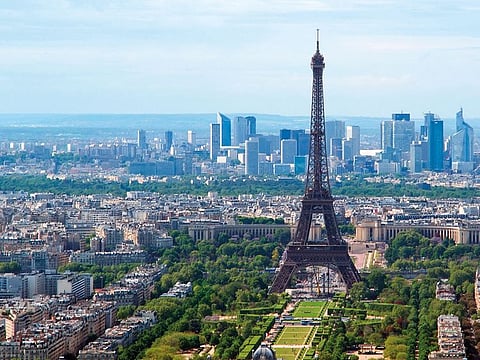Costliest, cheapest cities: What factors determine rankings?
Here's a look at why some places are so much more more expensive, or cheaper, than others

Dubai: Currency fluctuations continued to be a major factor behind what makes cities around the world more or less expensive.
Whether due to currency volatility, as a result of “money tightening in the US and the strengthening US dollar” or as a result of the “political instability and external imbalances”, as in Turkey and Argentina, it reflected the political and economic situations in the 133 cities surveyed in the Worldwide Cost of Living 2019 index, released by the Economic Intelligence Unit (EIU) this week.
Singapore kept its rank as the most expensive city in the world, but for the first time, it is not alone. It shares the rank with both Hong Kong and Paris.
“The impact of high inflation and currency denominations is reflected in the average cost of living this year. Taking an average on the indices for all cities surveyed using New York as the base city, the global cost of living has fallen to 69 per cent down from 73 per cent last year,” said the report. “This remains significantly lower than five years ago, when the average cost of living index across the cities surveyed was 82 per cent and 10 years ago was 89 per cent.”
Rabia Yasmeen, senior analyst at Euromonitor International told Gulf News that “a lot of factors” play a role in determining the cost of living in different cities.
“But on a general level, yes all the currencies and economic policies impact the cost of living and have a trickle down impact on the quality of living simultaneously.”
Some people from the least expensive cities, she explained, can afford living in the most expensive ones.
“While many countries and economies are focusing on building their monetary policies, not all of them are focusing on larger scale on improving the quality of living within those cities,” she said.
India is tipped for rapid economic expansion but, in per head terms, wage and spending growth will remain low. Income inequality means that low wages are the normEIU report
However, this is changing, as some cities such as Karachi, which is listed among the least expensive ones, are focusing on urban planning, where they are trying to improve administrative services through better governance.
Other cities on the list of 10 expensive cities include Zurich, Geneva, Osaka, Seoul, Copenhagen, New York, Tel Aviv and Los Angeles.
Listing both New York and Los Angeles among the whole North America region came as a result of a stronger US dollar last year, which “meant that cities in the US generally became more expensive globally, especially relative to last year’s ranking.”
At the same time, currency devaluation and inflation were “prominent factors in determining the cost of living with many cities tumbling down the ranking owing to economic turmoil, currency weakness or falling local prices.”
As a result, countries like Argentina, Brazil, Turkey and Venezuela sharply fell in their cost of living ranking.
Caracas got the title of the least expensive city in the world, and is followed by Damascus. The same list includes Tashkent, Almaty, Bengaluru, Karachi, Lagos, Buenos Aires, Chennai and New Delhi.
“India is tipped for rapid economic expansion but, in per head terms, wage and spending growth will remain low. Income inequality means that low wages are the norm, limiting household spending and creating many tiers of prices as well as strong competition from a range of retail sources.”
Moreover, the availability of goods from rural producers into cities and in cheap prices, coupled with government subsidies in the Indian cities kept the prices down, especially in western standards, said the report.



